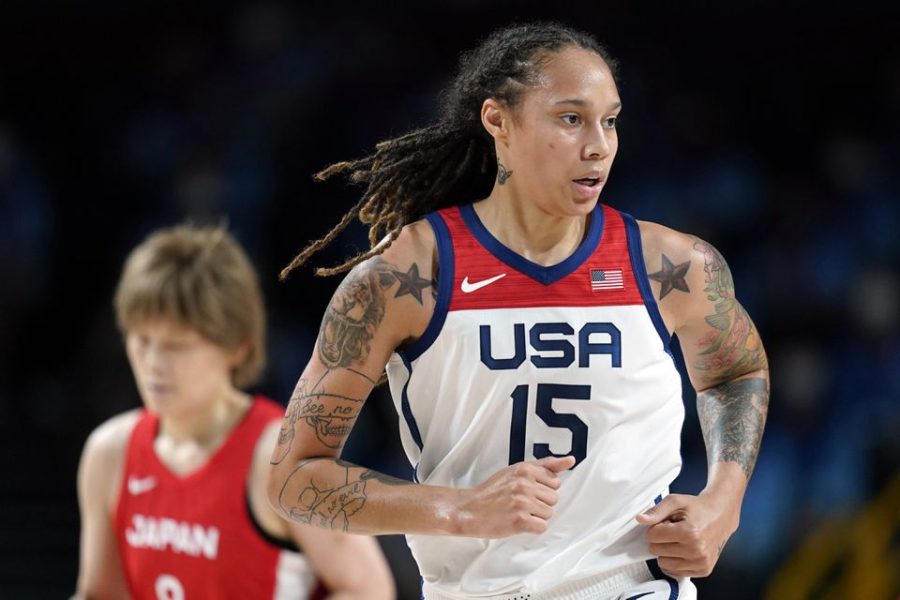U.S. State Dept. will seek WNBA superstar Brittney Griner’s release from Russian incarceration on cannabis charges
WNBA player Brittney Griner has been held in a Russian prison on cannabis charges since Feb. 17. She faces a possible prison sentence of 10 years.
Brittney Griner is a legend in the Women’s National Basketball Association (WNBA). She is a seven-time WNBA all-star and a two-time was WNBA defensive player of the year. Griner also plays for Team USA and for Russian team UMMC Ekaterinburg internationally.
While attempting to leave Russia because of the Ukrainian conflict, Griner was found with cannabis oil during a customs inspection and was arrested on Feb. 17. She now faces up to 10 years in prison.
After 75 days of incarceration in a Russian prison, the U.S. State Department took an official position on Griner’s situation, stating, “The welfare and safety of U.S. citizens abroad is among the highest priorities of the U.S government. The Department of State has determined that the Russian Federation has wrongfully detained U.S. citizen Brittney Griner. The U.S. government will continue to undertake efforts to provide appropriate support to Ms. Griner.”
According to ESPN, “Tthe change in official designation means that the U.S. government will no longer wait for Griner’s case to play out through the Russian legal system and will seek to negotiate her return.”
Many fans question why Griner even went to Russia. Female athletes, in general, are disproportionately paid, including in the WNBA. “While the average pay last year for a WNBA player was around $116,000, men in the NBA were paid about $7.5 million on average,” according to MSNBC.
It’s unfortunate that Griner was even in Russia, but due to this massive pay gap between the National Basketball Association (NBA) and the WNBA, Griner plays in an international league to supplement her WNBA salary.
Aside from being a WNBA player, Griner happens to be Black and gay. Students and staff feel divided over whether or not those factors affected her incarceration. “Yes, I believe [Griner being Black and gay] has a lot to do with her incarceration, although she may just be an ‘American’ who can be made an example of as well,” Olympic Heights social studies teacher Ms. Lucianne Muriel said.
Conversely, some hold a different opinion. “I don’t believe that her race or sexuality affected her incarceration,” said OH junior Andrew Nebenzahl. “I actually do believe drug possession warrants incarceration, because even though I’m unfamiliar with their laws, I’m sure they wouldn’t tolerate it if another person had it.”
Another student derives points from both of these arguments. “Although I do think some discrimination exists within our justice system, this incarceration took place in Russia, so I’m not really sure what influenced this incarceration whether it be race, sexuality, or different factors,” OH junior Jesse Bloom said.
Bloom and Muriel both believe that minimal drug possession doesn’t warrant such an extreme punishment. “There should be minimal punishment for non-violent drug offenses or programs such as drug court, offered as an alternative to incarceration,” Muriel believes.
Most fans, including Muriel, believe that Griner should receive aid from legal assistance, while Bloom suggests an ambassador for her release. While these solutions may seem simple, it’s the most diplomatic way to end the excessive incarceration of Griner.
While assisting Griner may benefit her family and team, it may aggravate Russia. “Involvement with Russia could further their aggression towards us and [Griner],” stated Muriel. While Muriel and Bloom both agree that Russia may view helping Griner as an offensive play and make them more aggressive towards the USA.
“Dealing with foreign policy will be tough for the USA,” Nebenzahl says. Collectively they all agree that if the U.S. were to help Griner, the conflict between the U.S. and Russia would grow, and being that Russia is at war with Ukraine, it may be strongly opposed to allowing Griner to return to the USA.









